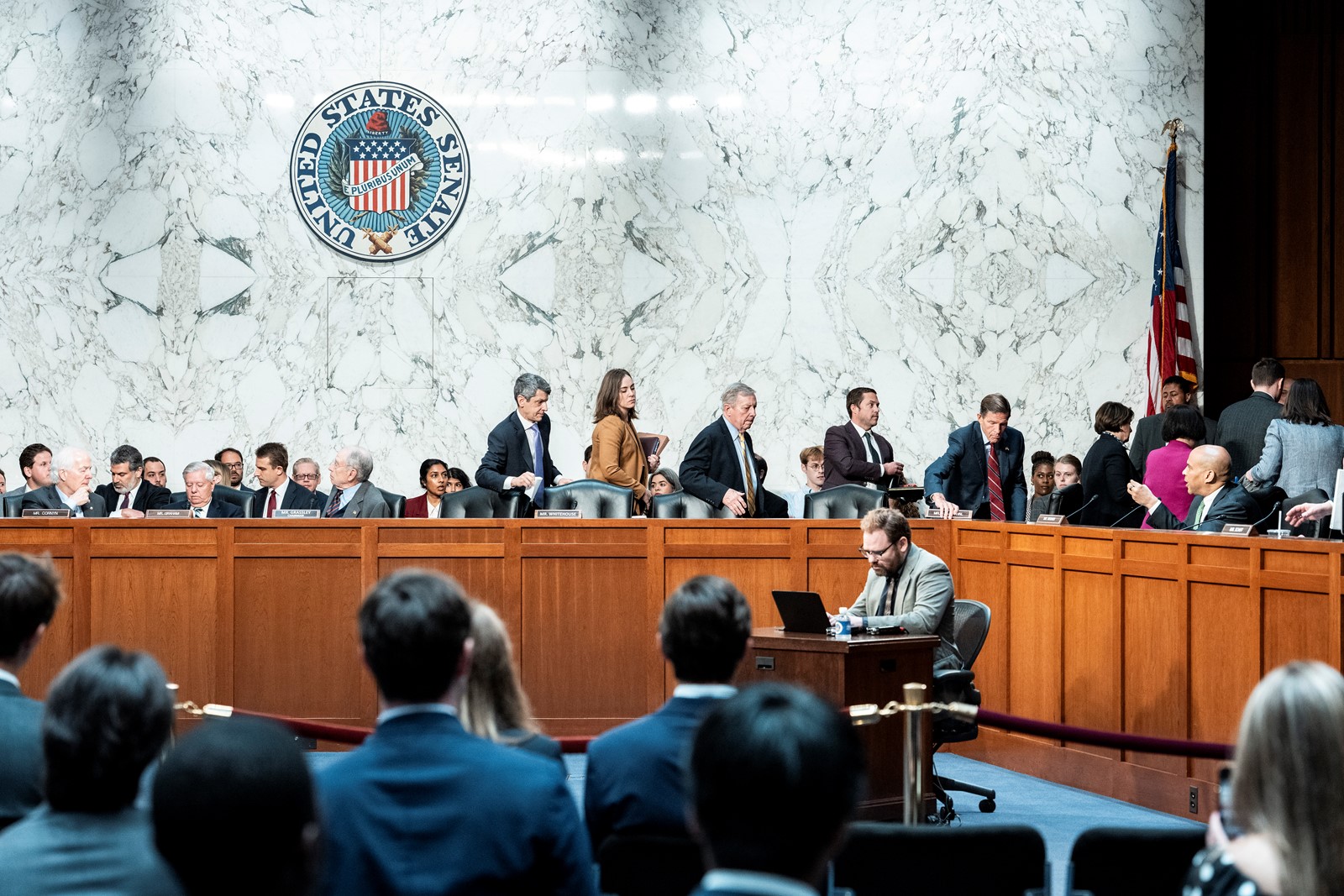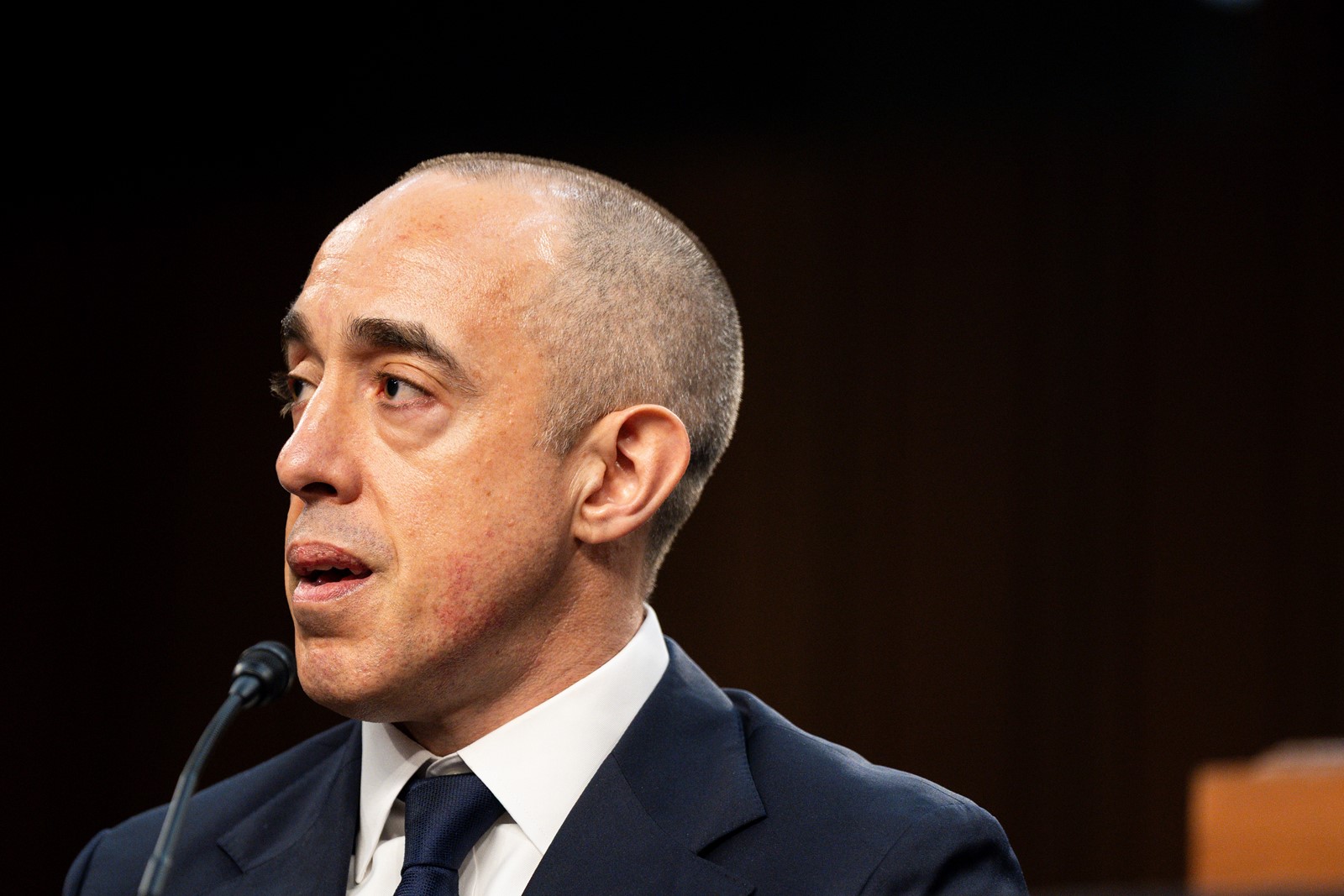

WASHINGTON >> A Senate committee voted Thursday to advance the nomination of Emil Bove, the Justice Department enforcer who oversaw dozens of firings and the dismissal of bribery charges against New York Mayor Eric Adams, to a lifetime post as a federal judge.
Republicans on the Senate Judiciary Committee unanimously approved the nomination after Democrats stormed out in protest when the panel’s chair, Sen. Chuck Grassley, R-Iowa, called the roll before every Democrat on the committee had a chance to air their objections.
“Sir, this lacks decency,” said Sen. Cory Booker, D-N.J., his voice raised and visibly agitated. “It lacks decorum. It shows that you do not want to simply hear from your colleagues. This is absolutely wrong!”
Grassley ignored him and plowed on. In a voice vote, committee Republicans voted to confirm Bove, 44, to a lifetime appointment on the 3rd U.S. Circuit Court of Appeals, which encompasses Pennsylvania, New Jersey and Delaware.
The vote was a prelude for what is expected to be an even more intense battle on the Senate floor over a nominee seen by his many critics as the embodiment of the administration’s obliteration of institutional safeguards intended to shield the department from White House interference.
Bove is more likely than not to be confirmed, barring any new developments that will sway several Republican senators to reject a lifetime judicial appointment for a taciturn and unyielding former New York City federal prosecutor who swiftly rose to prominence after serving on Trump’s criminal defense team.
The vote came after Democrats waged a bitter effort to derail Bove’s nomination by persuading Republicans on the committee to buck the White House, which has pushed hard to place a reliable Trump loyalist with an expansive view of executive power to a critical federal appellate court.
In the days leading up to Bove’s appearance before the committee, Erez Reuveni, a former immigration lawyer dismissed by Bove for insubordination, came forward to assert that Bove had told subordinates that he was willing to ignore court orders to fulfill Trump’s aggressive deportation campaign.
On Wednesday, more than 900 former Justice Department lawyers signed a letter to the Senate Judiciary Committee expressing “deep concern” about the nomination of Bove.
In the letter, the former department lawyers suggested that Bove had disgraced the department during his six months there, and that his confirmation would be “intolerable.”
Bove defended himself against such claims during a testy confirmation hearing last month, telling the committee that he was not “a henchman” and that he had acted lawfully during his brief but eventful tenure at the department. He also defended Trump’s right under the Constitution to fire career prosecutors without providing evidence of their misconduct.
When pressed on his actions, Bove often refused to answer, citing attorney-client privilege and department rules against discussing ongoing investigations.
Sen. Sheldon Whitehouse, D-R.I., ripped the Republican majority for failing to hold Bove to account for his actions.
“We can’t even get answers,” Whitehouse said, shortly before Grassley shut down the Democrats.
The entire process, he added in exasperation, “more resembled a rackets hearing from ‘The Godfather’” than a good-faith airing of the facts.
Bove’s deceptively modest title, principal associate deputy attorney general, belied his vast power in the department — derived from his close relationship with the president and Trump’s top domestic policy aide, Stephen Miller, who has played a central role in pushing the department’s maximalist anti-immigration agenda.
Because his post did not require Senate confirmation, Bove was among the first Trump appointees to arrive at the department, overseeing a succession of major policy and personnel moves, starting with a memo threatening to prosecute state and city officials who refused to carry out immigration enforcement.
But the most defining episode of his tenure was the battle he waged against his former colleagues in the U.S. attorney’s office for the Southern District of New York over the administration’s request to drop bribery charges against Adams, who had personally appealed to the White House for a legal reprieve.
Bove pressured top prosecutors in the office to drop the case. He claimed that the charges had been brought by an overzealous Biden-appointed U.S. attorney and argued that the case would hinder Adams’ capacity to cooperate with the White House on immigration enforcement.
The interim U.S. attorney in Manhattan, Danielle Sassoon, resigned rather than sign off on Bove’s command.
Bove’s current boss, Deputy Attorney General Todd Blanche, who served with him on Trump’s legal team, accused Bove’s critics of spreading slander and misinformation.


 PREVIOUS ARTICLE
PREVIOUS ARTICLE
